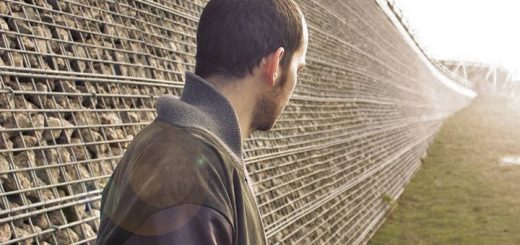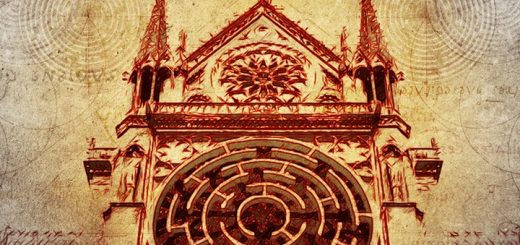My Bolognese experience with spiritual exercises from the borders for LGBT+ people, their parents and pastoral workers
Matteo's testimony onSpiritual Exercises “From the Borders” for LGBT+ people, their parents and pastoral workers(Bologna, 28 October/2 November 2022)
I am happy to be able to share an experience of an open, welcoming and lively Church with my Christian Life Community (CVX LMS).
First I would like thank, as I have already done on other occasions, the Jesuits, the CVX LMS and the spiritual exercises for the training they gave me and for having built a place where I could live with ordinariness the awareness and awareness of my homosexuality and my life as a Christian (group leader, point of reference for the community) who decided to start a family with Mirko and share together with the community our civil union. An ordinariness which is a great fortune for me, but which I realize is still an exception in the world of pastoral workers and the church.
An ordinariness which is our experience up to now and which we believe should be the point of arrival for a Christian community but which is still far from being reached. And in Bologna we perceived the value and preciousness of this ordinariness.
In Bologna from Friday 28 October to Tuesday 2 November 2022 we participated with Mirko in the Spiritual Exercises “From the Borders” for LGBT+ people[1], their parents and the pastoral workers who accompany them who were taught by the Jesuit Father Pino Piva SJ and other pastoral workers in the Ignatian spirituality center of "Villa San Giuseppe".
In particular, the great driving force behind the initiative was theassociazione cristiana “La Tenda di Gionata”[2], a cultural volunteering project aimed at making “know the path that LGBT (lesbian, gay, bisexual and transgender) Christians take every day in their communities and in the various Churches”, so that these experiences can help society and the Churches to open up to understanding and welcoming homosexual people.
The first discovery was the existence of numerous groups in Italy include LGBT+ Christians and their parents: Florence, Reggio Emilia, Rome, Bergamo, Turin, Genoa, Modena, Bologna, Naples, Padua, Puglia, Sicily, Calabria. To date there are forty ecclesial entities present in Italy, many of these groups are hosted in structures of the Catholic Church and in some dioceses they are the result of initiatives of the diocese itself.
Some of these are "bottom-up" pastoral experiences that have a ten-year history (for example the Guado group in Milan was born in 1980 and in the same period they were born in Turin, Padua, Bologna) and others were born in the period of the pandemic when several "regional" groups of homosexual believers have come into contact to pray together and discuss their relationship with faith. In recent years, several have been born groups of Catholic parents (gathered in 3VolteGenitori network) in which the coming out of a homosexual or transgender child revealed a need for discussion and greater awareness to be shared. In September, an important training event for pastoral workers was organized in Bologna (on LGBT+ pastoral care).
A reality of groups, movements and pastoral realities that I didn't know but which left me with a strong awareness that Each person's story is unique and unrepeatable, and that all these experiences focus on respect for each person, for their diversity and uniqueness.
How unique is the story of faith of every Christian which is built thanks to relationships, encounters with people and with God on their journey. I was lucky enough to have this experience for the first time with my husband Mirko, so it was the first such intense experience of spiritual exercises.
Spiritual Exercises “From the Borders” they were divided into moments of: biblical lectio; silent personal prayer (the morning dedicated to the personal spiritual journey); sharing in groups and with training workshops (in the afternoon). All in an atmosphere of silence, meditation and prayer; but also of sharing, knowledge and communion.
Four days that were divided into a journey that I am happy to share:
Day 1) Jesus, frontiersman. The Risen One precedes us in Galilee, the frontier of the Jewish religious world.
We did this with the passage (Mt 8, 5-13) about the pagan centurion who in Capernaum asks for salvation for his servant, and Jesus is amazed at his humility and faith and saves him.
Galilee is a frontier land, in contact with the pagans, far from the purity of the faith. The border is the place where I find myself IN FRONT of another who is different, who is not according to my culture or my tradition. It is the place of dialogue, of looking towards others. Jesus is a frontier man because he engages in dialogue. Listen. Accept diversity. He welcomes her. From the border he announces salvation.
In the afternoon we discussed the pastoral experiences with LGBT+ people and their parents of the groups: In Cammino of the dioceses of Bologna, Bergamo and Genoa. With the touching experience of Mara and Agostino.
2) Church and borders: pastoral discernment. The Church is the community of Jesus Christ only if it remains "on the frontier". The need for a continuous exercise of "pastoral discernment" in a changing world. Glimpsing the presence of the Lord in reality, his personal care for each of us and for his community.
We did it with the passage (John 21.1-14) on the manifestation of Jesus on Lake Tiberias for the so-called "miraculous catch", in which the Lord from the shore, in the guise of a stranger, invites Peter (the church) and disciples to cast the nets on the other side and, to do in a new way, to open themselves to newness. From this new way comes the abundance of fishing and the possibility of sharing it with the Lord.
In the afternoon we discussed the stories of transgender people (Alessandra) and their parents (Maria Assunta).
3) LGBT+ people in the church. How a "Pastoral program with LGBT+ people, their parents and friends" is configured or can be configured
We did it with the passage (Mk 8,1-10) of the second multiplication of the loaves and fishes which takes place in pagan land, because Jesus was sent for everyone, as he himself understands from the faith of the Canaanite Syrian Phoenician who "is be satisfied” with the crumbs that fall from the masters' table in order to be saved.
The church is the place where diversity is integrated, the Christian community wants to resemble the kingdom of God towards which it tends. LGBT+ people bring a radical diversity, because until now they have been seen as a diversity. The church is a family in which diversity is welcomed, served and helped. In the family we share, respecting the needs of each one who are listened to and served by the community.
4) LGBT+ Christian people and groups; Lucky Parents; Pastoral Workers. How to walk together?
Prayer on the body and limbs (1Cor 12, 4-26). The tension between diversity and unity is necessary for life, a continuous dialectic. Each one is a gift for the common good. Everyone has a charisma which is the personal and unique creative way of integrating the traits of their person: creativity of the spirit for the common good. The gifts of the spirit only make sense together with the others. The body is one and has many members. Diversity is a gift from God. The limbs that are the weakest are the most necessary. Let the various members take care of each other. Taking care of poverty and need becomes life, community.
The last common reflection was how to concretely contribute "from these borders” at the “Cantieri” of the second stage of the Synod. This second year, after listening to all the dioceses of the world and ecclesial realities and movements, the Italian and global Church faces 3 construction sites and we are called to animate them:
- the road and the village: importance of telling and listening to the stories of life and faith and importance that language remains open, welcoming and respectful so that it acts as a bridge, access to experiences that seem foreign;
- hospitality and home: to be all co-responsible for the life of the community, to work with the entire Christian community so that the personal history of each baptized person with his wounds, his victories, with the emotional colors of his relationships, with hopes and fears is integrated into the common history of the community itself;
- diaconates and spiritual formation: services and ministries that every baptized person, and also LGBT+ people, can access without prejudice and discrimination through training for all that enhances the Christian perspective of Evangelii Gaudium and Amoris Laetitia (welcoming, discerning, integrating).
After these intense days, the awareness of the importance of being visible in our communities as LGBT+ Christians is important and the Italian church is recognizing this, sometimes with difficulty and other times with enthusiasm and enthusiasm.
Per questo anche a Cagliari e in Sardegna è bene che i credenti cattolici LGBT+, i loro genitori e gli operatori pastorali che li seguono abbiano luoghi di condivisione, confronto e preghiera comune, ed è bene che anche a livello nazionale la Comunità di Vita Cristiana (CVX) sia attenta a questa realtà in cammino insieme a chi se ne prende cura.
________
[1] Come scrive Padre Martin, autore del volume “costruire un ponte”, usare l’acronimo LGBT è “teologicamente utile e rispettoso” e “riferendosi alle persone LGBT con il nome che in questo momento più utilizzano per se stesse, fa parte del “rispetto” richiesto dal Catechismo (N. 2358 ). Abbiamo con gioia fatto nostre le parole contenute al n. 250 di Amoris laetitia: «Ogni persona, indipendentemente dal proprio orientamento sessuale, va rispettata nella sua dignità e accolta con rispetto» e non solo, «deve avere gli aiuti necessari per comprendere e realizzare pienamente la volontà di Dio nella propria vita».
[2] Il Progetto Gionata nasce nel 2007 durante la preparazione della Veglia contro l’omofobia e dal 2018 è sostenuto dall’Associazione cristiana “La Tenda di Gionata” fondata da alcuni volontari su sollecitazione di don David Esposito, un sacerdote della diocesi di Fermo prematuramente scomparso, che ha voluto far nascere una realtà di servizio (διακονία) che favorisse in Italia l’accoglienza, la formazione e l’informazione dei cristiani LGBT, dei loro familiari e degli operatori pastorali ed il dialogo su questi temi nelle diverse realtà cristiane.
> The other testimonials aboutSpiritual Exercises “From the Borders” for LGBT+ people, their parents and pastoral workers(Bologna, 28 October/2 November 2022)






